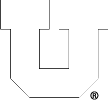As CADE no longer offers general use compute servers, we thought some may be interested in other on-campus options. A simple one to set up is through the Center for High Performance Computing (www.chpc.utah.edu). In addition, they’ve recently announced expanded service through a test/debug queue <https://www.chpc.utah.edu/news/latest_news/2019_mar/201903020.php>
“We have two new AMD processor (Epyc 7601) based nodes now available as compute nodes on notchpeak. Each node has 64 physical cores and 512GB of memory.
Instead of adding these nodes to the general notchpeak partition, we are using them to explore having a “test or debug” queue, with a shorter maximum wall time. We are doing this as we have had several requests for a test queue, and the arrival of these nodes has given us an opportunity to see if there will be sufficient usage of this queue.
In order to maximize throughput of short jobs, and provide access to all users, they have been placed in a separate partition, with node sharing enabled. In addition, the nodes are being run such that they will allow a load of twice the number of physical cores, again to maximize job throughput.
Use of these nodes is limited:
· Maximum wall time is 4 hours
· Maximum jobs in the queue per user is 10
· Maximum running jobs per user is 2
· Maximum cores per user is 32
· Maximum memory per user is 128GB
To use set both the partition and the account to notchpeak-shared
As node sharing is being used – users MUST specify the number of cores and the amount of memory – seehttps://www.chpc.utah.edu/documentation/software/node-sharing.php for additional details.
All users have been given access, and the usage of these two nodes will not use any general allocations.
Please report any questions or issues to helpdesk@chpc.utah.edu

